Sudan timeline July-September 2025: Daily attacks, disease, and disaster obscure plans for peace
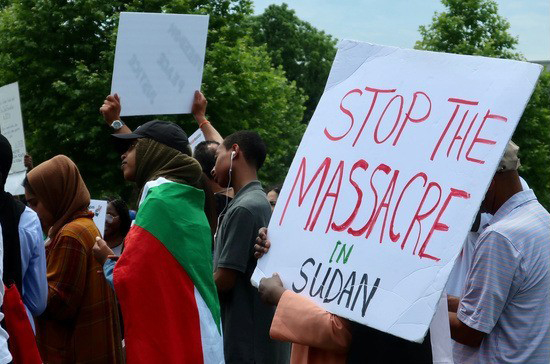
Sudan protest (File photo: ACJPS)
The June 30 March of the Millions anniversary seems a distant memory as Sudan steps into the rainy season in earnest. The overarching themes of the period are the increased spread of diseases such as cholera, malaria, and dengue fever, regular reports of the brutal killing of civilians by warring parties, and flooding and natural disasters. Sudan hits the international stage due to a devastating landslide in Darfur.
In the North Darfur capital, El Fasher, the warring parties continue to battle it out, causing widespread and horrific destruction. The Rapid Support Forces (RSF) carry out one of the deadliest massacres of the war yet in the Kordofan region, but begin to lose ground to the Sudan Armed Forces (SAF). Meanwhile, Sovereignty Council leader and SAF commander-in-chief Lt Gen Abdelfattah El Burhan and RSF Commander Mohamed ‘Hemedti’ Dagalo play politics.
Amidst reports of heavy civilian casualties throughout the country, hunger and disease is rife. Critical funding shortages force drastic cuts to life-saving food assistance, whilst international leaders struggle to puzzle together a plan for peace, which is met with derision and dismay.
Experts and academics call for a “homegrown path to tolerance and transitional justice.” Sudanese people lament the complex challenges that face a country, rich in resources but stripped of all abilities to make sustainable use of them, due to international, national, and regional plays for power, control, and wealth.
The rainy season takes hold in July, as concerns over flooding and heavy rainfall are raised through discussions about the Grand Ethiopian Renaissance Dam (GERD). Attention is pulled from the bloody reality of war towards the dam itself, climate change, and natural disasters. The risks associated with the rainy season, including the spread of waterborne diseases, compound the dire humanitarian situation. International efforts to create a peace plan begin in earnest, led by the US, as the International Criminal Court (ICC) publishes a damning report citing ongoing war crimes and crimes against humanity. The RSF and SAF continue to battle over strategic ground and political prowess, leaving civilians in their wake at every turn.
July 1: Several parties call for an urgent investigation as a mine collapse claims at least 11 lives, while other sources indicate that the actual number of victims may exceed 50. The World Food Programme (WFP) warns that food aid to some Sudanese refugees could dry up within two months.
July 3: The UN Office for the Coordination of Humanitarian Affairs (OCHA) reports that since July 2024, over 83,000 cholera cases and 2,100 deaths have been reported, with over 32,000 suspected cases recorded in 2025 alone. Ethiopia announces plans to inaugurate the GERD in September, dismissing concerns raised by critics by extending an invitation to Sudan, Egypt, and all Nile Basin countries to attend.
July 6: The SAF claims to have regained strategic ground in Kazgeil and El Rayash, located along the southern border of North Kordofan. Local authorities forcibly deport 1,200 displaced people from Ed Damer, River Nile state, amid security tensions.
July 7: War disruption to education puts children at risk of becoming a “lost generation.” Nonetheless, league football returns to the country, as eight clubs compete to determine Sudan’s champions.
July 8: The Federal Emergency Operations Centre confirms 603 cholera cases in one week across 17 Sudanese states, including eight deaths.
July 9: Massad Boulos, US President Donald Trump’s Special Adviser on African Affairs, reveals plans for a ministerial-level meeting with the Sudan Quartet, consisting of the US, Saudi Arabia, United Arab Emirates, and Egypt, to re-engage on Sudan.
July 10: The 41st report of the Prosecutor of the ICC to the United Nations Security Council is published, detailing ongoing war crimes and crimes against humanity in Darfur.
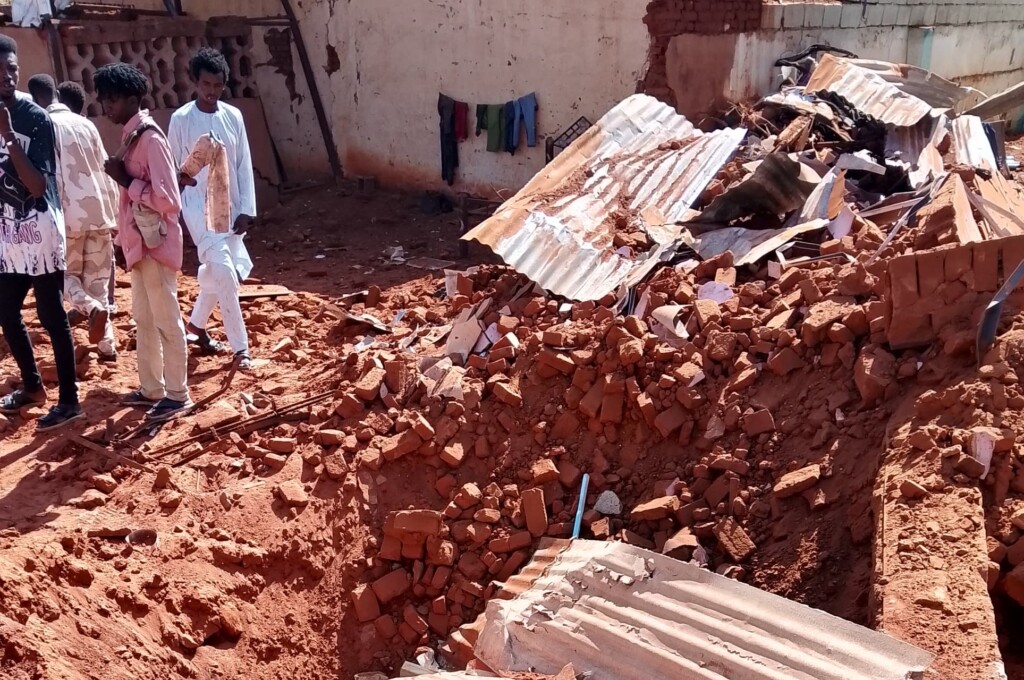
July 11: On UN World Population Day, Radio Dabanga sources report that 72 per cent of facilities in Khartoum, capital of Sudan, are no longer functional.
July 12: RSF attacks several villages around the city of Bara in North Kordofan, killing at least 238 people.
July 13: SAF airstrikes kill dozens of civilians in West and North Kordofan amid SAF airstrikes, as a brutal RSF attack kills 11 in Shaq El Noum and 46 in Hilat Hamid. The UN Children’s Emergency Fund (UNICEF) announces that over 450 civlians were killed in the “horrific attacks” in the area over the past two days, and 3,400 people were forced to flee.
July 14: Trump announces efforts to resolve disputes between Egypt and Ethiopia over the GERD. Uganda announces that it will halt dual citizenship for Sudanese, amid heightened national focus on citizenship issues in the lead-up to Uganda’s 2026 elections.
July 15: Amid displacement and limited infrastructure, Sudanese youth continue to seek learning pathways where they can, on World Youth Skills Day. Arbitrary detentions and social media incitement undermine the rule of law, warns the Sudan Media Forum.
July 16: Sudanese legal experts and rights defenders slam ICC briefing, saying it “lacks seriousness and tangible results.” Sudan’s childhood immunisation rate drops to just 48 per cent, the lowest in more than 40 years, according to the World Health Organisation (WHO) and UNICEF.
July 18: A new Yale Humanitarian Research Lab (HRL) report corroborates the RSF massacre in North Kordofan, as the EU sanctions Sudanese commanders and entities over rights abuses. Pakistan explores joint agricultural ventures with Sudan, alongside Saudi Arabia.
July 20: Defamation, discrimination and exclusion of women are on the rise, reports Sudan Media Forum.
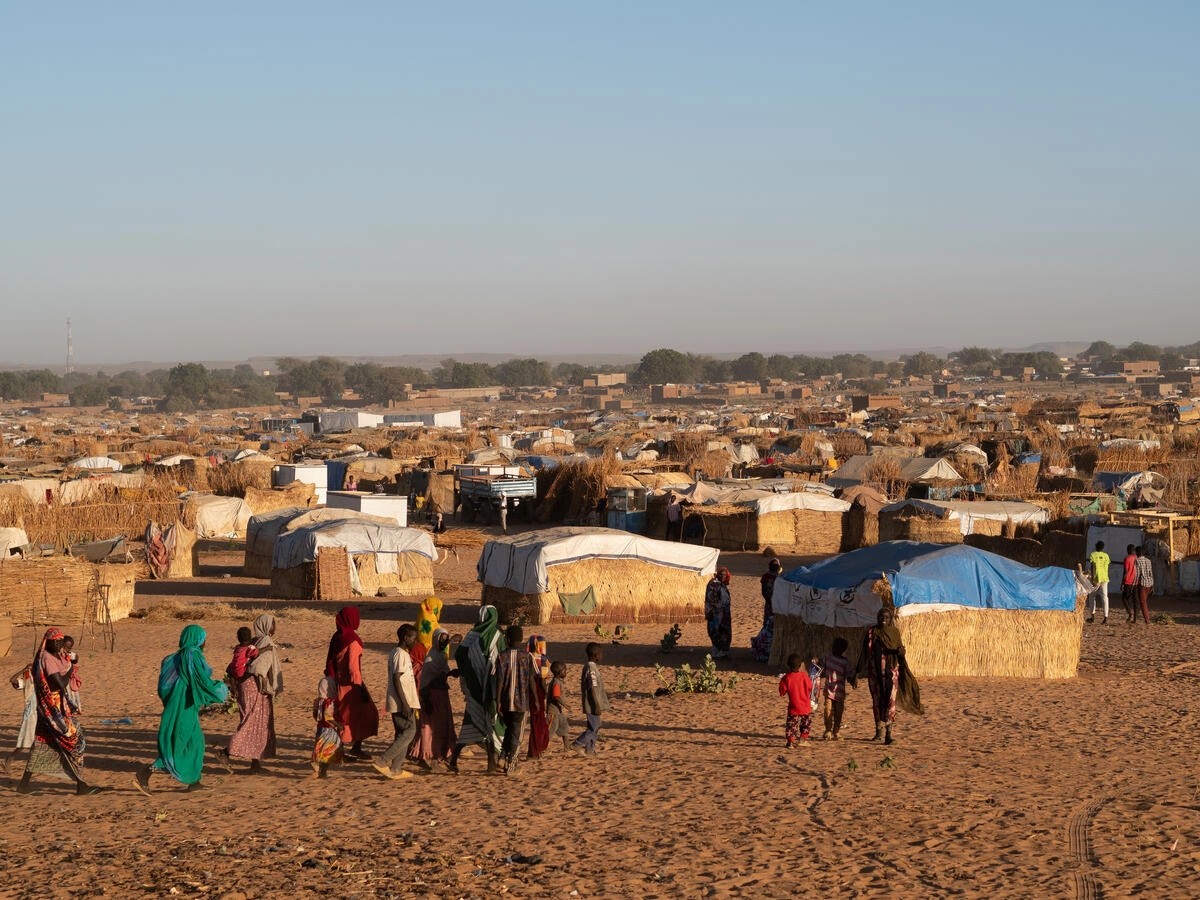
July 21: Sudan’s Telecommunications and Post Regulatory Authority announces a nationwide block on WhatsApp calls, citing security concerns.
July 22: Khartoum remains gripped by violence, theft, and insecurity as authorities push for the return of displaced people.
July 23: The African Centre for Justice and Peace Studies (ACJPS) calls the situation in Sudan “one of the world’s most severe humanitarian emergencies.”
July 25: The Islamist movement is making moves to make a political comeback, according to Ahmed Haroun, chairman of the former ruling National Congress Party (NCP) and one of four Sudanese people wanted by the ICC.
July 26: The Sudan Founding Alliance (Tasees), led by the RSF, announces a new founding government in South Darfur capital, Nyala, triggering fierce and polarised reactions across the country.
July 27: Civil society organisation Darfur Union UK condemns the formation of the new Tasees founding government. Agriculture in El Gezira is collapsing after three years without harvest, as Sudan’s pastoralists pay a heavy price for the ongoing civil war.
July 28: Multiple sources report hundreds of deaths among thousands of cases of cholera across Darfur, and deaths rise as Port Sudan swelters in 47°c (116°F) heat amid prolonged power cuts. The United Nations High Commissioner for Refugees visits Kiryandongo camp in northern Uganda, following the death of a Sudanese refugee in a knife attack which injured dozens.
July 29: The National Mine Action Centre discovers three minefields planted in and around Khartoum, allegedly by the RSF. As the Sudan Quartet summit gets underway in Washington DC, the African Union Peace and Security Council rejects the Tasees “so-called parallel government.” Attacks in South Kordofan cause hundreds of deaths, mass displacement and the collapse of essential services.
July 30: The RSF and SAF both claim control of key North Kordofan town, Umm Sumeima, amid widespread displacement. On World Day Against Trafficking In Persons, Sudanese children living on the streets of Tripoli, Libya, face homelessness and exploitation.
July 31: The Sudan Liberation Movement (SLM-AW) faction leader Abdelwahid El Noor calls for a UN intervention to combat cholera. A student’s 10-year prison sentence for a joke about joining the RSF is denounced as “unfair and unjust.”
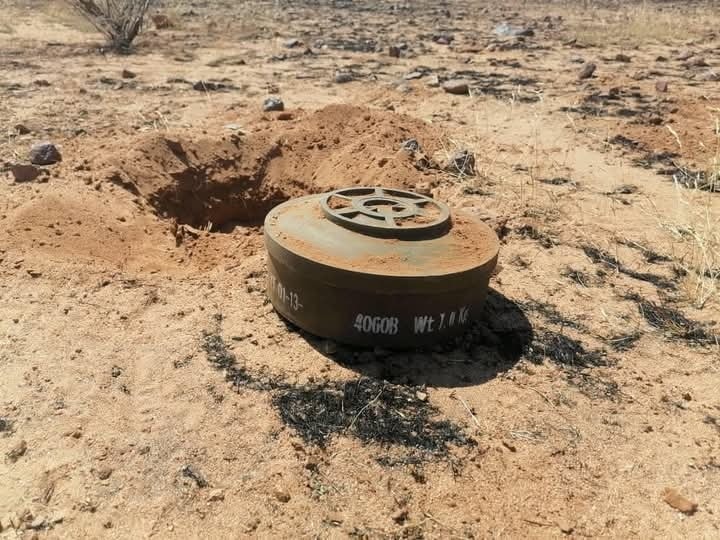
In August, El Fasher once again becomes the flashpoint for the war between the RSF and SAF. Disturbing news emanates from the North Darfur capital of famine, genocide, summary executions, and fortification of boundary walls as the RSF siege hits its 500th day. The world’s largest displacement crisis sees a glimmer of respite, as Sudanese people begin to return to safer areas. The month draws to a close with a devastating natural disaster in Darfur, which makes international news, one day after Hemedti is sworn in as head of a new parallel government.
August 2: The SAF claims to have repelled an RSF attack on El Fasher, after repelling a large-scale attack on the northeastern and southwestern axes of the North Darfur capital the day before.
August 3: UNICEF report a deadly cholera outbreak is sweeping through Darfur and other conflict-affected regions of Sudan, with children bearing the heaviest toll.
August 4: People are reportedly surviving on ambaz, a byproduct of peanut production usually used as animal fodder, as the UN warns of famine in North Darfur. The UN Security Council holds closed consultations to review the worsening humanitarian and political situation in Sudan.
August 6: The SAF claims to have destroyed an Emirati aircraft carrying “mercenaries and military equipment destined for the RSF” in Nyala, but an Emirati source refutes the claim. The United Arab Emirates (UAE) suspends flights to and from Sudan. De Volkskrant highlights how Radio Dabanga is “a beacon” for millions of Sudanese, where access to independent news is “a matter of life and death.”
August 8: The WHO warns against spreading hunger and disease in Sudan.
August 9: On World Day of Indigenous Peoples, Sudan remains the world’s largest displacement crisis, with nearly 13 million people displaced. The RSF dismisses the SAF’s claim of destroying an Emirati aircraft earlier that week.
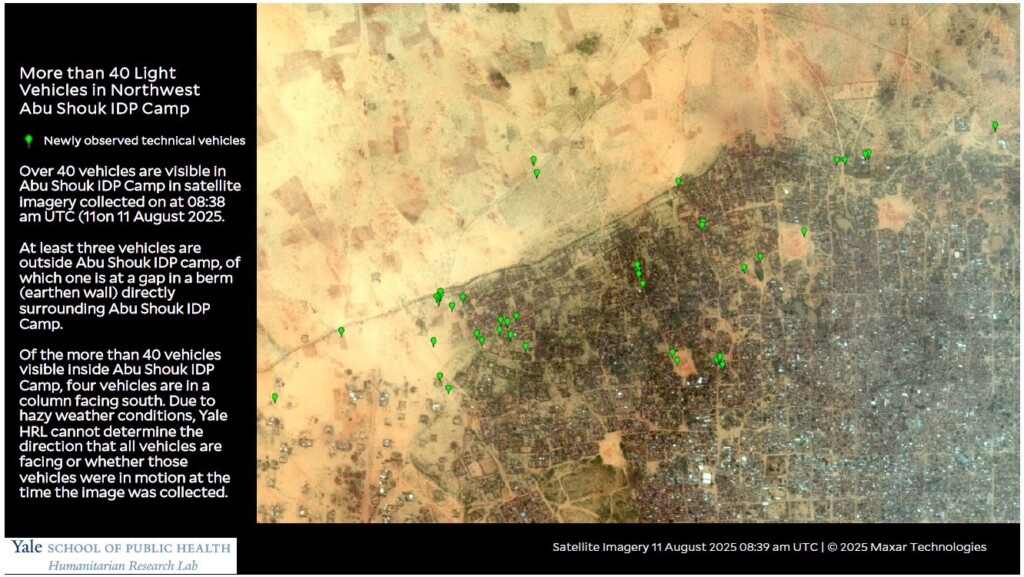
August 11: The Darfur Union in the UK accuses the RSF and allied factions of committing genocide in El Fasher. “Civilians are enduring a deepening crisis with ongoing attacks, acute hunger and starvation,” UN Spokesperson Stéphane Dujarric tells reporters. The Sudan Transparency and Policy Tracker (STPT) publishes a report on the regional and international dimensions of conflicts in eastern Sudan.
August 12: As the world marks International Youth Day, young Sudanese are keeping the spirit of the UN Sustainable Development Goals alive, against the odds. The RSF continues to intensify the offensive on the besieged city of El Fasher, launching violent assaults that leave dozens dead.
August 13: The UN High Commissioner for Human Rights, Volker Türk, condemns a large-scale attack by the paramilitary RSF on El Fasher and the nearby Abu Shouk Camp for displaced people.
August 14: NPO Radio 1 visits the studios of Radio Dabanga in Amsterdam to interview Editor in Chief Kamal Elsadig about the situation in Sudan, which is often “a forgotten country.”
August 17: The RSF claims to have seized the SAF Central Reserve Forces headquarters in southwest El Fasher. More than 20 newspapers have halted publication since the outbreak of the war, plunging the country into an information blackout.
August 18: Darfur and eastern Chad witness a sharp rise in cholera cases, especially within camps for internally displaced people and refugees. A video which allegedly shows a summary execution of a civilian by an RSF member in North Darfur sparks outrage. El Burhan appoints new senior officers in a reshuffle that strengthens his hold on the military.
August 19: On World Humanitarian Day, at least 84 humanitarian workers have been killed in Sudan since the conflict erupted in April 2023. The RSF announces its incursion into El Zayadiya neighbourhood in El Fasher, claiming control of El Najah School, just two kilometres from the SAF Sixth Infantry Division.
August 20: The bombing of a WFP aid convoy in Mellit, North Darfur, sparks mutual accusations. Sudan secures a spot in the African Nations Championship football quarter-finals.
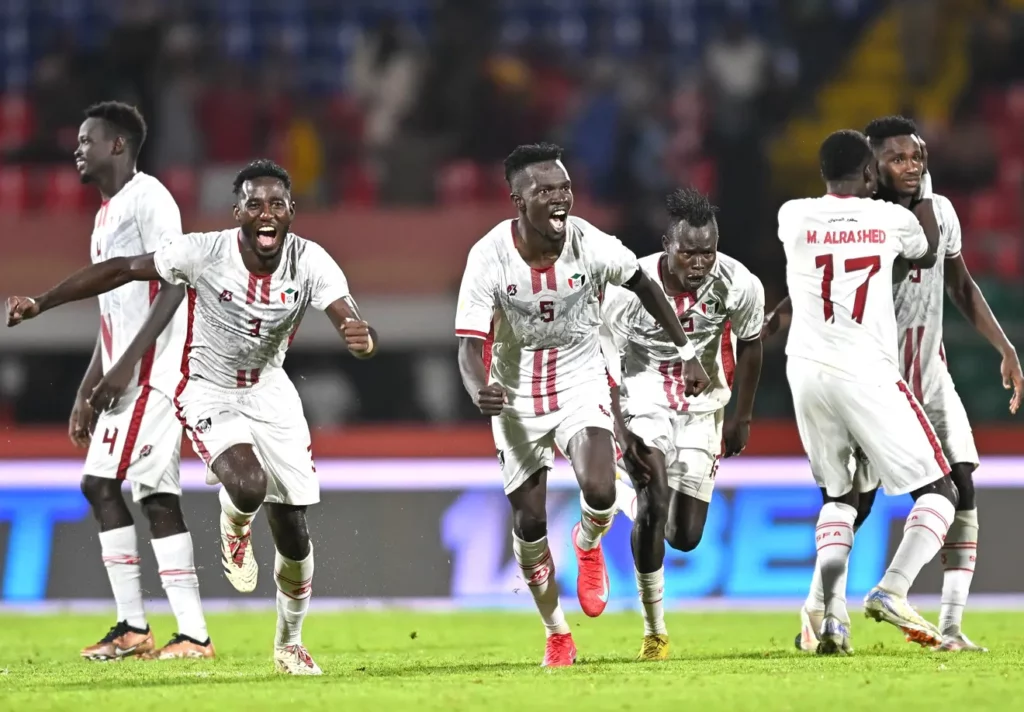
August 21: The Strategic Initiative for Women in the Horn of Africa (SIHA) convenes a regional webinar as women and girls face the full force of the war.
August 22: Ten days of “brutal” RSF attacks have left at least 89 people dead in the western region of Darfur, says Volker Türk.
August 23: The Sudan Conflict Monitor warns that “Sudan’s warring elites are entrenching divisions while civilians pay the ultimate price.” RSF units launch another offensive on southern El Fasher, allegedly repelled by the SAF Joint Force. Radio Dabanga reports on art as resistance and survival on the International Day for Remembrance of the Slave Trade.
August 24: The outbreak of war has led to the destruction or closure of most public and private hospitals and health facilities that provide medical care to women. The pace of issuing death sentences against civilians on charges of collaborating with the RSF continues to escalate.
August 25: The RSF renews artillery shelling on Abu Shouk camp in El Fasher; in Nyala, capital of South Darfur, the paramilitary group claims to have shot down a Turkish-made drone. More than two million displaced Sudanese returned to seven states of Sudan between November and July, according to an International Organisation for Migration (IOM) report, and a UNICEF aid convoy reaches South Kordofan for the first time since October 2024.
August 26: The nationwide death toll hits 2,561 as cholera, dengue fever, measles, hepatitis, and heatstroke outbreaks peak. UN Secretary-General António Guterres has a phone call with Kamil Idris, Sudan’s transitional prime minister.
August 27: At least eight are reported dead, and homes and roads washed away, amid flash floods in Khartoum, River Nile state, Red Sea state, Sennar, Darfur, and parts of the Northern State. UNICEF warns that after 500 days under siege, El Fasher has become “an epicentre of child suffering.”
August 28: Yale HRL reports that the paramilitary RSF has built over 31 kilometres of earthen walls around El Fasher to control population movements and the entry of food and medicine. Sudan Doctors report 24 killed and 55 wounded in an RSF attack on densely populated areas in the North Darfur capital.
August 29: Former Sudan Foreign Minister Omer Gamareldin, in an interview with Radio Dabanga, says: “Stop the war first, then look for governments… Nyala and Port Sudan have no legitimacy.”
August 30: On International Day of the Victims of Enforced Disappearances, families press for justice and truth about loved ones who have vanished. Hemedti is sworn in as head of the Tasees parallel government.
August 31: At least 1,000 people are reported killed by landslides in Jebel Marra, a mountain range on the border of Central and South Darfur. Reports indicate the waters of the Blue Nile have receded to unprecedented levels due to the GERD, disrupting the annual flood season.
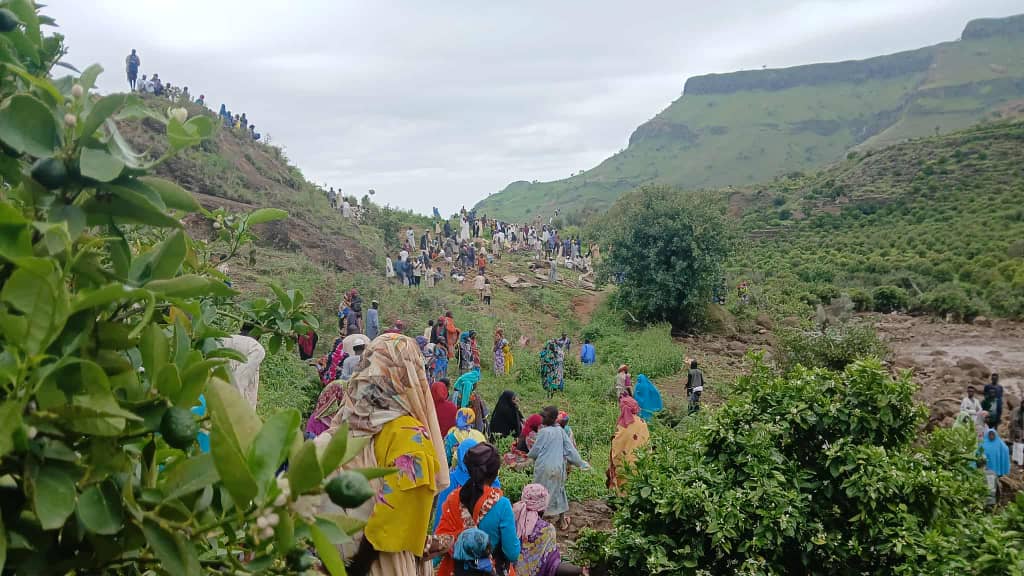
September sees more military and militia leaders sworn into positions of power in Sudan. People pick up the pieces of the Jebel Marra landslide, searching for loved ones, as flooding continues to wreak havoc across the country. Radio Dabanga reports on detainees dying of cholera in South Darfur, gross human rights violations in North Kordofan, and the tragic death of Sudanese youths attempting to cross the Mediterranean. El Fasher residents are still subject to shelling, artillery fire, and drone attacks, but towards the end of the month, small SAF wins crack open a window of opportunity to break the siege.
September 1: As the El Fasher RSF siege deepens, a hospital strike kills 35 people in Nyala, during the swearing-in of Mohamed Hassan El Tawashi as Prime Minister of the RSF-led parallel government. Experts discuss how successful Tasees will be.
September 2: Sudanese certificate exams finally conclude for 5,260 Sudanese refugee students in Chad. Near the Nyala, ACJPS reports that detainees are dying in cholera-ridden Deqris Prison. El Burhan swears in Wahbi Mohammed Mukhtar as president of Sudan’s Constitutional Court in Port Sudan.
September 3: As an increasing number of people displaced by the war return to Khartoum, talk of chemical contamination in the city has increased. News of the Jebel Marra landslide, covered widely in international media, is met with global expressions of sympathy and solidarity.
September 4: The RSF claims to have downed an SAF drone over Mershing in South Darfur.
September 5: Warring parties are waging a “war of atrocities” that deliberately targets civilians, the UN’s Independent International Fact-Finding Mission on Sudan warns, citing crimes against humanity.
September 6: “Unifying civilian voices, halting the war, and delivering relief to Sudan are an urgent priority,” says STPT Executive Director Suleiman Baldo in an interview with Radio Dabanga.
September 7: Conflicting death tolls are reported in the wake of the Jebel Marra landslide, as authorities make headway in recovering bodies.
September 8: The US trial of French bank BNP Paribas begins over the company’s alleged role in Sudan human rights abuses.
September 9: The Tasees coalition of armed groups and political parties led by the RSF claims responsibility for drone strikes in Khartoum.
September 10: Between 30 August and 10 September, Yale HRL satellite imagery confirms more than 50 shelling incidents in Abu Shouk camp for displaced people in El Fasher. Sudanese women are at the centre of economic war and systemic exclusion, say experts at the SIHA regional webinar.
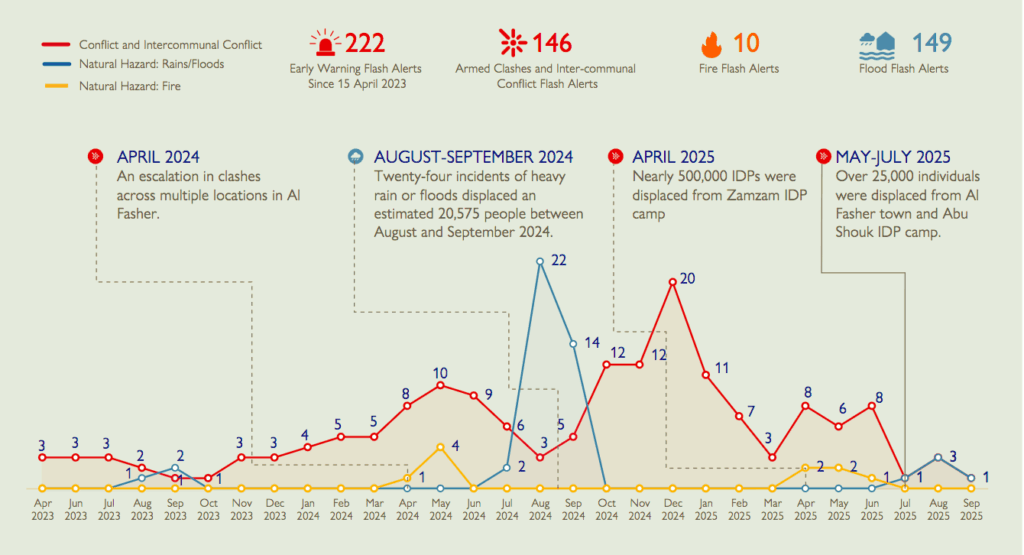
September 11: The SAF and Joint Forces seize control of Bara city in North Kordofan, loosening the RSF’s grip on the state.
September 12: Following their meeting in Washington DC, the Sudan Quartet proposal of a roadmap to peace garners mixed reactions from international actors.
September 13: 51 Sudanese youths drown while trying to reach Greece across the Mediterranean, in one of the most painful recent disasters associated with migration.
September 14: Five Sudanese people are reported dead in an attack in the area of Bashma, close to the border between South Darfur and the Central African Republic. “The identity of a homeland is at stake” as warring parties continue to damage museums, archaeological sites and cultural institutions.
September 15: International Day of Democracy highlights Sudan as a stark example of a nation where the promise of democratic participation has been silenced by war.
September 16: Since the war began, the Sudanese Observatory for Human Rights has documented the detention of 3,300 people in the cities of Wad Madani, El Hasahisa, and Rafaa in El Gezira state. Malaria, dengue, and typhoid spread as mosquitoes multiply in Khartoum.
September 17: The Emergency Response Rooms of Sudan win the Rafto Prize 2025 for “saving lives and strengthening communities in one of the worst humanitarian crises of our times.” The RSF claims to have repelled an SAF attack on the Rahid El Nuba area in North Kordofan, as ACJPS warns of serious escalations in gross human rights violations.
September 18: Consultations begin to extend the mandate of the UN fact-finding mission on human rights in Sudan, as fighting in North Kordofan escalates and artillery shelling continues in El Fasher.
September 19: In El Fasher, El Safiya Mosque and nearby homes in the El Daraja Awla neighbourhood are struck at dawn by an RSF drone attack, killing at least 75 people. UN reports that ethnically-driven killings have increased this year.
September 20: Islamic thinker El Mahboub Abdelsalam calls for a “homegrown path to tolerance and transitional justice,” in an interview with Radio Dabanga.
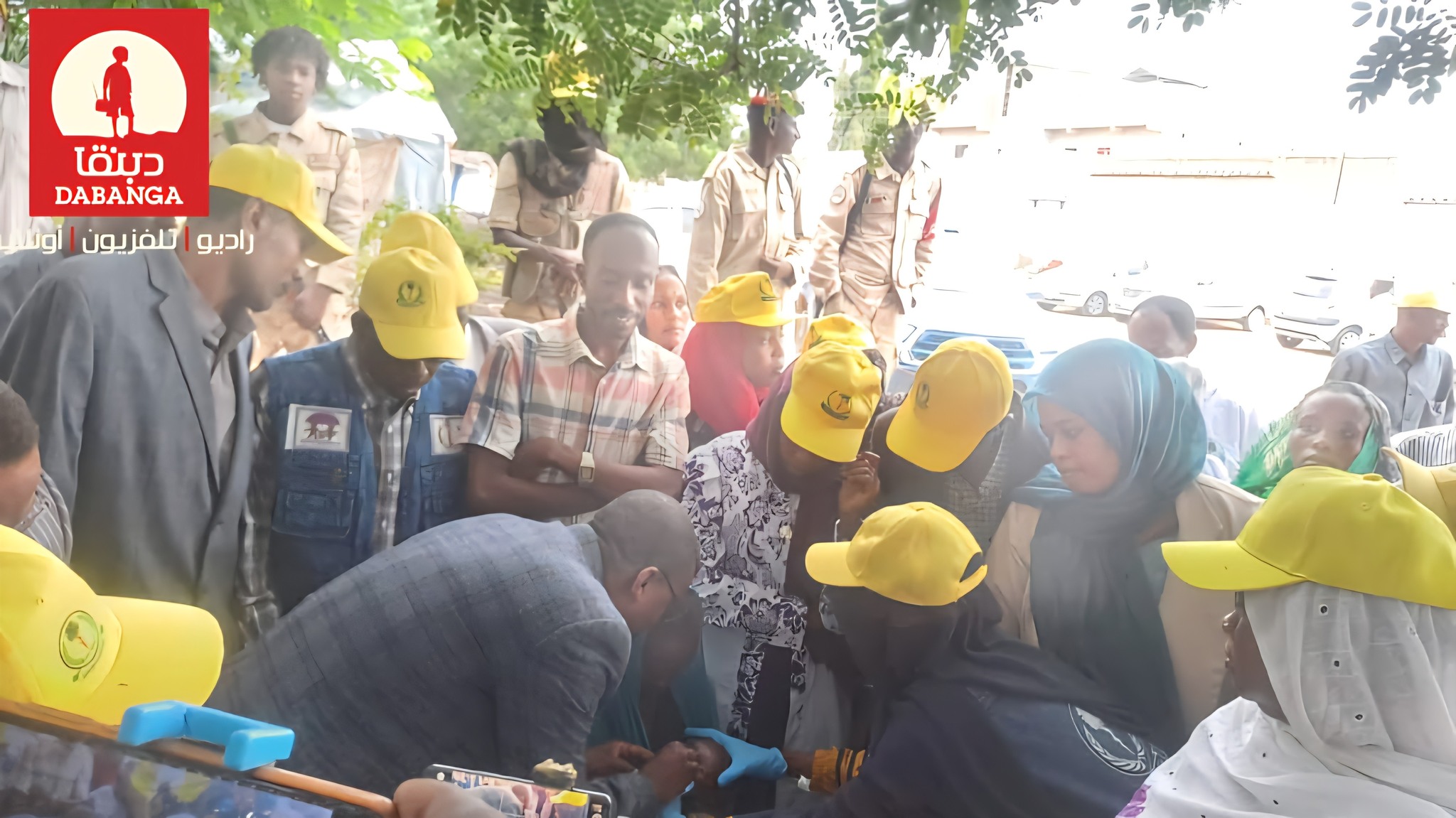
September 22: The SAF Sixth Infantry Division reports that its troops repelled a large-scale RSF assault on the southern and north-eastern outskirts of El Fasher, as the RSF claims to have reached the El Quba neighbourhood.
September 23: Over 5,000 cases of malaria, typhoid, and dengue fever, accompanied by dozens of deaths, have been reported in the past month in one area of Khartoum.
September 24: The UN, alongside international partners including the United Kingdom and Kenya, sounds the alarm again over Sudan’s rapidly deteriorating humanitarian crisis. Tens of thousands of Sudanese people have fallen victim to dengue fever and other diseases, Sudan’s health minister says.
September 26: Prime minister Idris addresses the 80th session of the UN General Assembly to warn that his country faces “existential dangers” from war, genocide, and foreign mercenaries.
September 27: Contested Umm Sumeima in North Kordofan comes under attack by the SAF, forcing the RSF to retreat westward. “Sudan is becoming the world’s largest hotbed of terrorism and violent extremism,” says security expert Essam Abbas.
September 28: The emergency room of the Abu Shouk displacement camp in El Fasher reports the deaths of at least 73 children under five and 22 elderly people in just 40 days. “The independence of the media and the press are prerequisites for a functioning democratic system in Sudan,” writes Kamal El Sadig, Editor in Chief of Radio Dabanga.
September 29: Military experts say the balance of power looks set to shift, after a successful SAF airdrop of ammunition and supplies into besieged forces in El Fasher.
September 30: As the Nile floods across five Sudanese states, opinions are mixed on the impact of the GERD.
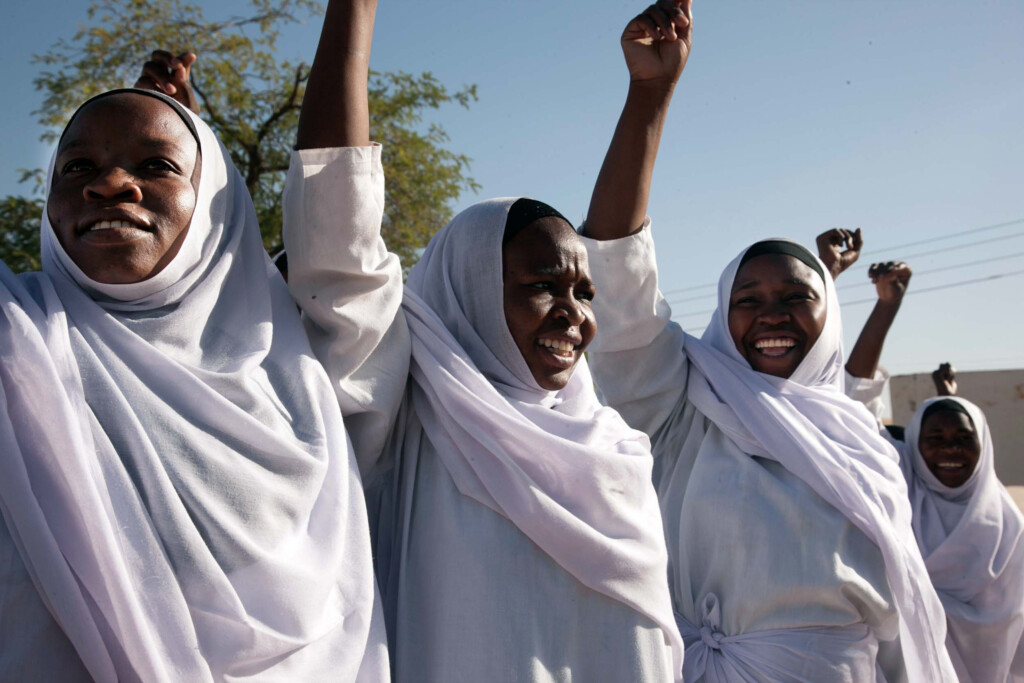
Previous timelines
Sudan timeline April-June 2025: Bleak hope emerges against bloody reality of conflict
Sudan timeline January-March 2025: Power shifts as army wins major battle grounds in destructive war
Sudan timeline October-December 2024: Reports of famine and calls for peace overshadowed by war
Sudan timeline July-September 2024: Thousands starving as war continues without mercy
Sudan timeline April-June 2024: Sudan war ‘remains overlooked by international community’
Sudan timeline January-March 2024: Sudan becomes ‘the largest humanitarian crisis in the world’
Sudan timeline October-December 2023: War deepens Sudan’s suffering
Sudan timeline July-September 2023: Sudanese ‘in survival mode’
Sudan timeline April-June 2020: Covid-19 marks all aspects of life, inflation soars
Sudan timeline January-March 2020: Little relief to the country’s economic, security woes
Sudan timeline October-December 2019: Interim government put to the test
Sudan timeline July-September 2019: Turbulent transformation from tyranny







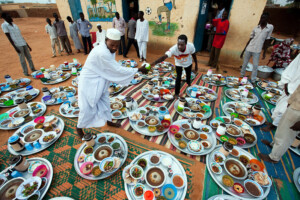



 and then
and then